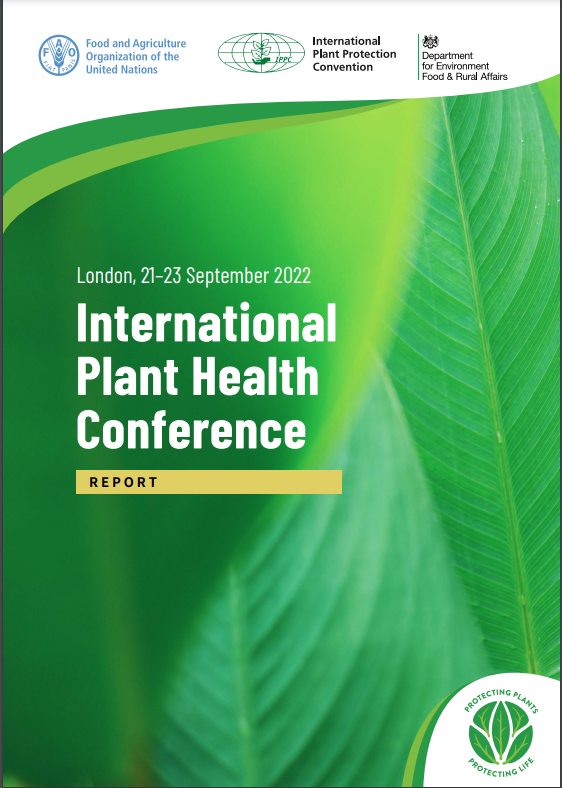International Plant Health Conference
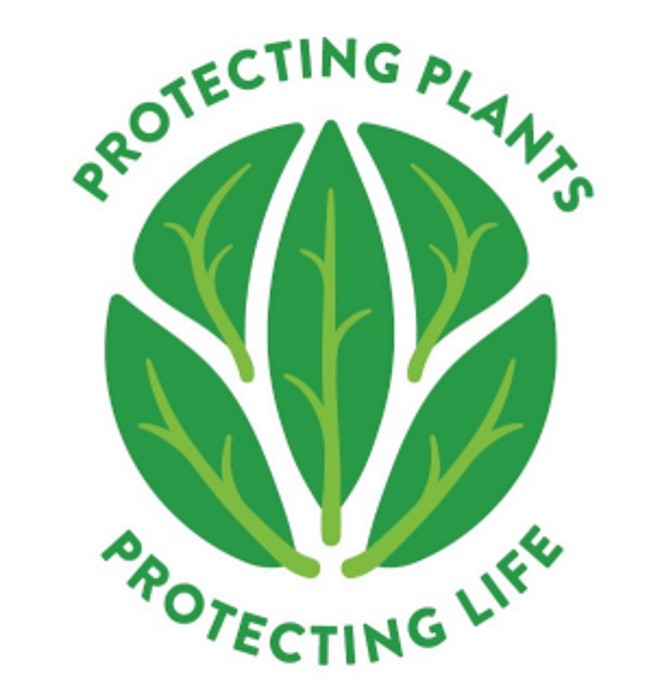
.
Plant health is a key factor in any strategy to achieve food security, protect the environment and biodiversity, and facilitate safe trade.
The First International Plant Health Conference aims to address new and emerging plant health challenges, including climate change impacts, the significant increase in international trade, the rapid loss of biological diversity and new pest pathways such as e-commerce by exploring more efficient national, regional and global policies, structures and mechanisms.
The Conference will be held at the Queen Elizabeth II Centre, in London, the United Kingdom on 21 – 23 September 2022 and is co-organized by Food and Agriculture Organization (FAO) of the United Nations, the Secretariat of the International Plant Protection Convention and the Department for Environment, Food & Rural Affairs (DEFRA) of the United Kingdom (UK).
Recording of the second day of the International Plant Health Conference:
Recording of the third day of the International Plant Health Conference:
Agenda
Speakers
DAY 1 | 21 September 2022 | |
FOOD SECURITY | |
Opening Ceremony | |
 |
The Rt Hon Lord Richard BenyonParliamentary Under Secretary of State, Department for Environment, Food and Rural Affairs (DEFRA) The Rt Hon Lord Benyon was appointed Parliamentary Under Secretary of State at the Department for Environment, Food and Rural Affairs on 13 May 2021. Lord Benyon returns to Defra having been Parliamentary Under Secretary of State for Natural Environment, Water and Rural Affairs from May 2010 to October 2013. Following a career in the army, where he served with the Royal Green Jackets from 1980 to 1985, Lord Benyon qualified as a chartered surveyor and ran a business which included farming, forestry and the management of rural and urban housing. Lord Beynon was Conservative MP for Newbury from May 2005 to November 2019 and was raised to the Peerage in January 2021. As the Minister for Rural Affairs and Biosecurity, some of his responsibilities include: Rural affairs, Protected Landscapes, Domestic Natural Environment, including Peatland and Soil, Biodiversity and 25 year environment plan strategy, Plant and Tree Health, SPS and Border Readiness, and Invasive Non-Native Species. He is the lead for?RBG?Kew, Animal and Plant Health Agency, Veterinary Medicines Directorate, Natural England, Joint Nature Conservation Committee and Animal Health and Welfare Board for England. |
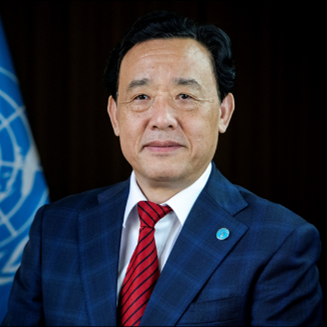 |
Qu DongyuDirector-General, FAO Qu Dongyu, who took office on 1 August 2019 as Director-General of the Food and Agriculture Organization of the United Nations, has spent his life working on how to make sure the world is fed. Born in 1963 to a rice-growing family in China’s Hunan Province, Qu studied horticultural science at Hunan Agricultural University and then plant breeding and genetics at the Chinese Academy of Agricultural Sciences. He later added environmental science to his knowledge portfolio while earning a PhD at Wageningen University, in the Netherlands. He then progressed through a range of national and international activities, engaged simultaneously in science and management. Before coming to FAO, Qu served as China’s Vice Minister of Agriculture and Rural Affairs, where one of his achievements was to promote inclusive and innovative development and make sure information and communication technologies (ICT) were available in rural areas so that more than 400 million farmers could use their smartphones as a new farming tool. As Vice Governor of Ningxia Hui Autonomous Region, one of China’s landlocked and poorest areas, Qu formulated action plans aimed at poverty reduction, disaster reduction and prevention, women empowerment, agritourism and mutual learning platforms designed to boost trust between ethnic groups. |
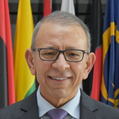 |
Osama El-LissySecretary, International Plant Protection Convention (IPPC) Dr. Osama El-Lissy is the Secretary of the International Plant Protection Convention (IPPC). The IPPC is a global intergovernmental treaty involving 184 countries and is responsible for setting and implementing international phytosanitary standards to protect the health of plant resources and to facilitate the global trade of agricultural products. Prior to his current appointment as the IPPC Secretary in March 2022, Dr. El-Lissy worked for the United States Department of Agriculture (USDA) for almost 22 years. For the past nine years, he served as Deputy Administrator of USDA’s Animal and Plant Health Inspection Service. In that role, Dr. El-Lissy led the national plant protection organization of the United States and served as the country’s chief plant health officer. He also provided leadership to 3,000 employees in the United States and around the world. Dr. El-Lissy held several other executive positions earlier in his USDA career. These included Associate Deputy Administrator, Director of Plant Health Emergency Programs, and National Coordinator of Cotton Pest Programs. Before joining USDA in 2000, Dr. El-Lissy?worked for the Texas Boll Weevil Eradication Foundation from 1994 to 2000, leading one of the largest pest eradication programs in the world. From 1986 to 1994, he worked with the Arizona Cotton Research and Protection Council, managing large-scale cotton pest eradication programs in Arizona and the southwestern region of the United States. |
 |
Sherry-Ann BrownChief Plant Protection Officer, Jamaica Ms. Sherry-Ann Brown is a young researcher with experience spanning the disciplines of Plant Pathology and Entomology. She holds a first degree in Microbiology from the University of the West Indies, Mona Campus. This passion for microbiology led to her starting off her career as a Seed Pathologist with the Ministry of Agriculture and Fisheries, Research and Development Division in 2013. In this capacity she conducted screening of planting materials for quarantine pathogens, seed viability testing and seed treatments. Her love for the field of Plant Protection grew and her desire to expand her knowledge in the area led her to pursue a Master’s of Science degree in Tropical Crop Protection from the University of the West Indies, St. Augustine. She has planned and executed various research activities to evaluate the effectiveness of pest control products inclusive of biological control organisms. She is integral in organizing monthly Beet Armyworm surveillance activities across onion and scallion production areas, and the preparation of the Risk Assessment Reports for the management of the pest locally. She is also a member of key committees in the Ministry of Agriculture and Fisheries such as the National Fruit Fly and the Tomato Leaf Miner Working Groups. Currently she is the Chief Plant Protection Officer in the Plant Protection Unit where she coordinates activities within the Entomology, Nematology and Plant Pathology Laboratories. |
 |
Jonathan DroriAuthor and specialist in the public understanding of science Jonathan Drori is an author and specialist in the public understanding of science. He is Trustee of The Eden Project, Cambridge Science Centre and Cambridge University Botanic Garden; an Ambassador for the WWF; and previously a Trustee of the Royal Botanic Gardens, Kew and The Woodland Trust. He is a former Executive Producer of more than fifty popular BBC TV series on science and technology and his TED talks on botany have been viewed millions of times. Jon is Honorary Professor of Science Communication at Birmingham University’s Institute of Forest Research and his books, Around the World in 80 Trees and Around the World in 80 Plants, which entwine science, culture and history, are bestsellers in many languages. |
I PLENARY SESSION - Global Perspective on Food Security | |
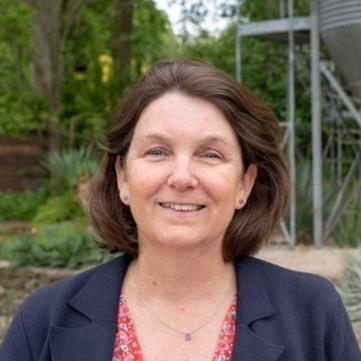 |
Nicola SpenceChief Plant Health Officer and Deputy Director, Plant and Bee Health, DEFRA, UK Nicola is Defra’s Chief Plant Health Officer (CPHO) and advises ministers, industry and others about the risks posed by plant pests and diseases, and ensuring that measures are in place to manage those risks and minimise their impact, as well as leading the operational response in the event of a disease outbreak. Although plant health is a devolved matter; the CPHO co-ordinates the UK response to European and International plant health matters and takes the lead on national plant health emergency response. Nicola is an experienced research plant pathologist and worked on virus diseases of horticultural crops in the UK and internationally for over 20 years. She is an expert in plant health and international plant trade and was previously the Head of Plant Health and then Chief Scientist at the Food and Environment Research Agency near York. She is a Fellow of the Royal Society of Biology, Honorary Professor at the University of Birmingham, Visiting Professor at Harper Adams University and a Trustee of The Royal Horticultural Society and The Yorkshire Arboretum. She has a BSc in Botany from the University of Durham, an MSc in Microbiology from Birkbeck College, University of London and a PhD in Plant Virology from the University of Birmingham. |
 |
Martin KropffGlobal Director, Resilient Agri-food Systems, CGIAR Presentation: Martin Kropff is the Global Director of CGIAR’s new Resilient Agro-Food Systems science area. In this role, he is building the world’s largest scientific group on resilient agri-food systems and uniting scientists across 6 regions in Asia, Africa and Latin America, and through 15 Research Initiatives in themes such as farming, cropping, and livestock/aquatic food systems. From 2015 and up until the middle of 2021, he was Director General of the International Maize and Wheat Improvement Center (CIMMYT). Before joining CIMMYT, Kropff was rector magnificus of Wageningen University and vice chair of the executive board of Wageningen University and Research. During his 10 years’ tenure, it developed into the highest-rated agricultural university in the world. He was also a member of the Top Team developing the Agri & Food TopSector in the Netherlands. Kropff earned a graduate degree in biology at Utrecht University and a Ph.D. at Wageningen University, both cum laude. He holds honorary doctorates from the National University of Life and Environmental Sciences, Ukraine and the Czech University of Life Sciences. He concurrently holds a professor position with Wageningen University. His scientific background is in systems agronomy, agroecology, crop modelling and climate smart agriculture. He has supervised more than 30 Ph.D. students, many of them working in developing countries. |
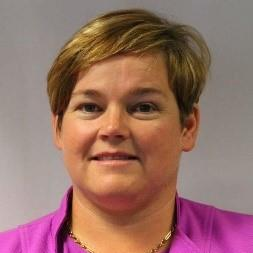 |
Louise ByrneChief Plant Health Officer, Rep. of Ireland Presentation: Louise Byrne is the Deputy Chief Inspector in the Department of Agriculture, Food and the Marine and the Chief Plant Health Officer for Ireland. She has responsibility for food and feed safety, plant health and crop policy. Louise studied Agricultural Science (specialising in Animal Science) in University College Dublin and she also holds a Bachelor of Arts Degree in Law. Louise has worked for the Department of Agriculture, Food and the Marine since 1998 primarily in areas relating to animal breeding and official controls along the agri food and feed chain. She headed up Brexit and International Trade Division coordinating the Departments response to and preparation for Brexit before being appointed to her current role in 2022. |
 |
Claire BuryDeputy Director-General, Food Sustainability, European Commission Claire Bury is currently Deputy Director-General in DG Health and Food Safety with responsibility for food safety and sustainability.She was previously Deputy Director-General for the Digital Single Market in DG Communications Networks, Content and Technology and Director of Modernisation of the Single Market in Directorate General Internal Market, Industry, Entrepreneurship and SMEs. From 2016-2022 she was visiting Professor for the Digital Single Market at the College of Europe in Bruges.She has also been Head of Unit for Company Law, Corporate Governance and Financial Crime in Directorate General Internal Market and Services, and Deputy Head of Cabinet to Internal Market Commissioners Charlie McCreevy and Frits Bolkestein.A barrister by training, she worked in the Commission's Legal Service and, before coming to Brussels, in private practice and the UK Foreign and Commonwealth Office. |
Parallel Sessions | |
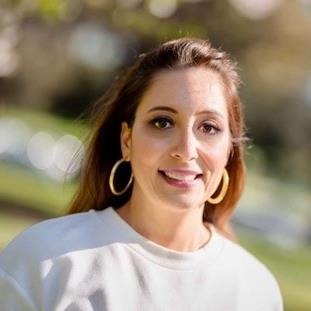 |
Adriana MoreiraInternational Plant Protection Convention Secretariat Presentation: Adriana Moreira has almost 10 years of FAO and currently she is a Standard Setting Officer and Deputy Lead to the Standard Setting Unit within the International Plant Protection Convention (IPPC) Secretariat. She holds a PhD degree in Plant Pathology, with emphasis in plant virology. She coordinates the work of the some IPPC technical panels and focus groups, and she is the IPPC Secretariat coordinator for the Technical Panel on Diagnostic Protocols (TPDP), where she is best known. From July 2020 until February 2022, she was the Officer-in-Charge for the Standard Setting Unit. Adriana Moreira also act as liaison between the IPPC Secretariat and several international organizations. She is author and co-author of several scientific publications, book chapters and other type of training materials. In 2019 she was recognized as one of “FAO 100 young employees”. Before joining the IPPC and FAO, she was Senior Plant Pathologist at multinational seed industry and was the plant quarantine lead coordinating a post-entry quarantine station. |
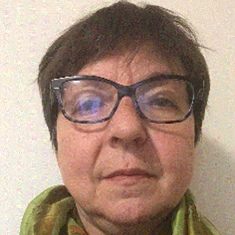 |
Françoise PetterEuropean and Mediterranean Plant Protection Organization Secretariat Presentation: Françoise studied agronomy in France and first worked for the French National Plant Protection Organisation (NPPO). She began her career in 1986 as the manager of a regional quarantine division (Paris area). In 1994 she joined the national level of the French NPPO in 1994 as policy officer and stayed in this position up to 2002. In this position she was in charge of coordination of inspections at national level, and took part in discussions on the plant health legislation at EU level, and was involved in international activities (bilateral and multilateral) for the French Ministry of Agriculture In 2003, Françoise joined the European and Mediterranean Plant Protection Organization as deputy director, where she co-ordinates and implements the Diagnostic and Pest Risk Analysis Programme for the organisation, supported by a team of scientific officers and assists the Director General on more general matters. |
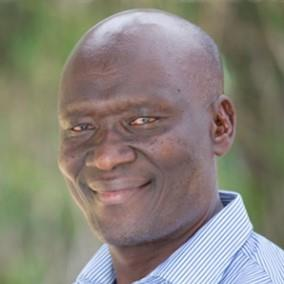 |
Washington OtienoSanitary & Phytosanitary Senior Advisor, Centre for Agriculture and Bioscience International (CABI) Presentation: Washington Otieno is a Senior Sanitary & Pytosanitary Adviser for CABI & a Consultant Phytosanitary Specialist at FAO SFE. Washington served CABI as Plantwise Programme Executive from 2016 – 2021 and as Africa Regional Coordinator of Plantwise from 2013 – 2016 where he led and coordinated the implementation of the program in more 12 countries in Africa and 18 countries in Asia and the Americas. Plantwise works through national and international partnerships to build capacity for improved plant health management through, inter alia, creation of networks of plant clinics, building pest data management systems and employing the use of ICT based innovations for pest information management. Prior to joining CABI Washington worked with the Secretariat of International Plant Protection Convention as Consultant for Phytosanitary Capacity Development; the Kenya Plant Health Inspectorate Service (KEPHIS) as General Manager; Tea Research Foundation of Kenya as a Research Scientist and University of Nairobi as a Lecturer. He holds BSc and MSc degrees in agriculture and plant pathology respectively from the University of Nairobi and PhD from Wageningen University and Research Centre. |
 |
Sebastien MassartProfessor, University of Liège Presentation: Sebastien Massart is professor of plant pathology at Gembloux Agro-Bio Tech (Liège University) in Belgium. His research is focused on diagnostics improvement, plant virology and plant microbiome. In the frame of Valitest project, he has leaded the development of international guidelines for the reliable use of high throughput sequencing technologies in plant pest diagnostics. He is currently managing a research team of 12 scientists in plant pathology. He is also the manager of the Germplasm Health Unit of Bioversity International Genebank of Musa germplasm, ensuring virus testing before international distribution. |
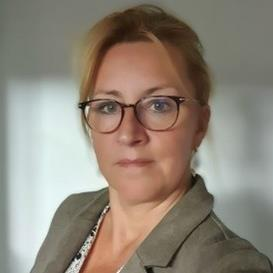 |
Françoise MunautPolicy Officer, DG SANTE, European Commission Presentation: Françoise Munaut is a policy officer at DG SANTE, in the Plant Health Unit. In her role she set up the first 5 EU Reference Laboratories (EURLs) in plant heath, and is the desk officer of the EURLs. She is responsible for diagnostics issues in Unit Plant Health and is a member of EPPO panels on diagnostics. She is also responsible for files related to potatoes, including regulations on control of potato diseases, derogations, amendments of EU legal acts. Françoise is a bioengineer (1990), and holds a PHD in agronomy and biological engineering, with a specialisation in plant pathology. Some of her previous roles include Researcher at the Université catholique de Louvain in Belgium 1991-2017, where she worked on research in plant pathology, in particular in mycology. She was also a biological resource manager of the Mycothèque de l’Université catholique de Louvain which is part of the Belgian Coordinated collection of microorganisms. |
 |
Géraldine AnthoineDeputy Director Presentation: Geraldine Anthoine is deputy director of the Anses Plant Health Laboratory in France, a position she has held for the last ten years. Her areas of interest include plant health, especially virology and nematology, quality management and pests regulations. Next to this position, Geraldine is also a technical assessor for the French accreditation body since 2010. After her agricultural studies ended in 1995, Geraldine started her carrier in laboratories with a continuous activity dedicated to validation of diagnostic tests and testing activity. Initially her area of expertise was related to plant viruses, and then with plant parasitic nematodes. |
 |
Fiona ConstableResearch Leader, Microbiology and Senior Plant Virologist Presentation: Dr. Fiona Constable leads the Microbiology group of Agriculture Victoria Research (AVR), part of the Victorian Department of Jobs, Precincts and Regions (DJPR) and is located at the Centre for AgriBioscience (AgriBio). AgriBio is one of the premier bioscience facilities in Australia and focuses on cutting-edge research to improve plant and animal productivity, biosecurity and reduce environmental impact. Dr. Constable has more than 30 years’ experience in plant virology and phytoplasmas, including ecology, diagnostics and biosecurity. |
Parallel Sessions | |
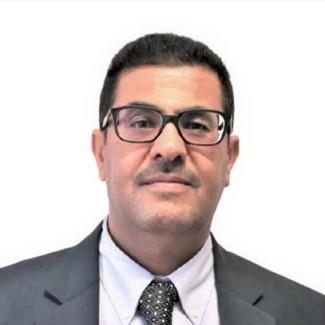 |
Shoki Al-DobaiTeam Leader, Locusts and Transboundary Plant Pests and Diseases, FAO Dr. Shoki Al-Dobai is an Entomologist with over 20 years of work experience in plant pest management, including biological control, pesticide management and phytosanitary measures. Since June 2019, he has been working as a Senior Agricultural Officer and Team Leader of the Locusts and Transboundary Plant Pests and Diseases at the Plant Production and Protection Division (NSP) of the Food and Agriculture Organization of the United Nations (FAO) in Rome. He supervises and coordinates the FAO plant health emergency prevention system, including the global locusts and other transboundary plant pests and diseases monitoring and early warning systems, and FAO’s emergency response programmes to the plant pest crises.From 2011-2017, he worked as a Regional Crop Protection Officer at the FAO Regional Office for the Near East & North Africa Region in Cairo, Egypt, and from 2017-2019 as the Integration & Support Team Leader of the Secretariat of the International Plant Protection Convention (IPPC) at FAO HQs in Rome. |
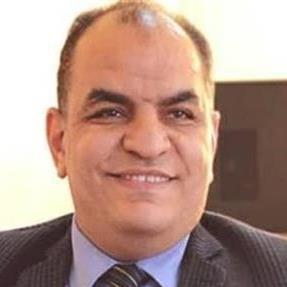 |
Ahmed Kamal El-AttarHead, Central Administration of Plant Quarantine, Egypt Presentation: Professor El-Attar is the Head of the Egyptian Plant Quarantine (National Plant Protection Organization - NPPO), and Professor of Plant Pathology and supervisor of molecular biology and biotechnology unit at the Department of Virus and Phytoplasma Research, at the Plant Pathology Research Institute - Agricultural Research Center. He is a member of the Commission of Phytosanitary Measures Bureau (CPM Bureau) of the United Nations (NENA region - 23 countries) and Chairman of the Regional Plant Protection Organization for the Near East & North Africa (NEPPO) (representing Egypt). Prof. El-Attar has a long history in international scientific arena specializing in the fields of plant health, plant diseases, monitoring and control of plant viruses, biotechnology, molecular biology, genetic engineering, the development of diagnostic methods of viral diseases and the production of genetically modified and antiviral vaccines utilizing modern genetic engineering applications. Dr. Ahmed holds a Bachelor of Science in 1996 from Cairo University and a Master of Science in Biochemistry- Molecular Biology 2003 from Cairo University in conjunction with the National Institute of Health (NIH) in Maryland, USA. He served as a visiting researcher at the NIH in Maryland, USA, 2002-2003. He finished his PhD in Molecular Virology at Cairo University in conjunction with the Department of Cell and Molecular Biology (CBM) at the University of Gothenburg, Sweden 2008. He served as a visiting scientist at plant and environmental science department- Gothenburg University, Sweden 2008-2010. |
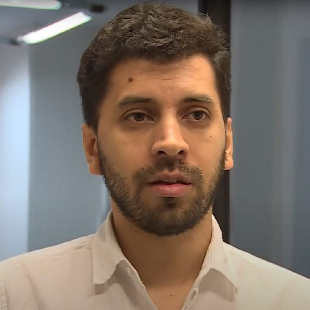 |
Hector Emilio MedinaAgricultural engineer, National Food Safety and Quality Service (SENASA), Argentina Presentation: Héctor E. Medina is an Agricultural Engineer, a specialist in Plant Protection. Since 2015, he has served as Head of the National Locust and Grasshopper Program in Argentina, leading the response to the emergency of the South American locust plague that affects the region. He coordinates the Technical Group on locusts of the Southern Cone Plant Health Committee (COSAVE) and coordinates the Technical Group on locusts and grasshoppers of the Inter-American Plant Health Coordination Group (GICSV). He was part of the list of specialists for the management of locusts of the FAO for the period July 2020 - July 2022, and integrated the Group of Alert Systems and Response to Pest Outbreaks of the International Plant Protection Convention (IPPC), as expert for Latin America and the Caribbean. Currently, his main function is that of General Coordinator of Contingencies and Emergencies in Senasa Argentina (NPPO). |
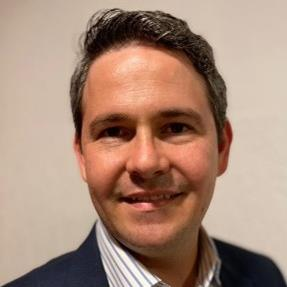 |
Carlos GoulartHead, Department of Plant Health and Agricultural Inputs, Brazil Presentation: Carlos Goulart holds a Bachelor's Degree in Agronomy and a Master in Tropical and Subtropical agriculture focused in plant production. He has worked as a Federal Agriculture Inspector for MAPA since 2007 with experience in regulatory and operational plant health (official programs, plant quarantine, pest risk assessment, quarantine treatments, phytosanitary certification). Since 2019, he has been working as Director of Plant Health and Agriculture Inputs (fertilizers, seeds and propagation materials, pesticides, GMO, protection plant varieties). |
 |
Rose Souza RichardsSeed Health Manager, International Seed Federation Presentation: Rose Souza Richards joined ISF in March 2020 as the Seed Health Manager. Rose is the key point person for the international seed industry with the International Plant Protection Convention, and responsible for the coordination of an industry-wide response to WTO notifications on proposed changes to national phytosanitary regulations. She also manages, develops, and promotes existing ISF activities such as the Systems Approach, the Regulated Pest List Initiative, and the International Seed Health Initiative. Rose has spent the last five and a half years working at the Ministry for Primary Industries (MPI) in New Zealand. Rose has a BSc in Agronomic Engineering from the State University of Bahia, Brazil, an MSc in Plant Pathology from the Federal University of Viçosa, Brazil, a second MSc in Plant Diversity from the University of Reading, UK and a PhD in Plant Molecular Virology from the University of Nottingham, UK. |
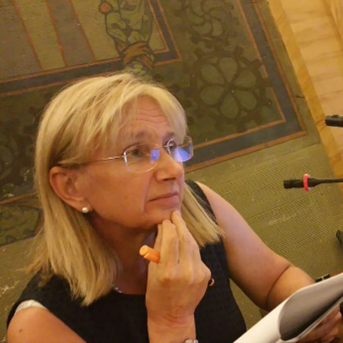 |
Mariangela CiampitiPhytosanitary Service, Lombardy Region, Italy Presentation: Mariangela Ciampitti graduated in Agricultural Sciences with a specialisation in Plant Production and Protection, and she has worked for more than 30 years for the Plant Protection Service of the Lombardy Region and for the Italian NPPO. She has gained broad experience in managing the first outbreaks of emerging pests accidentally introduced into Europe such as Anoplophora chinensis, Anoplophora glabripennis, Aromia bungii and, more recently, Popillia japonica. Mariangela is involved in several working groups, panels and scientific projects at international level (e.g., FAO and EU), and she is Representative of the Europe Region to the CPM Standards Committee. |
Parallel Sessions | |
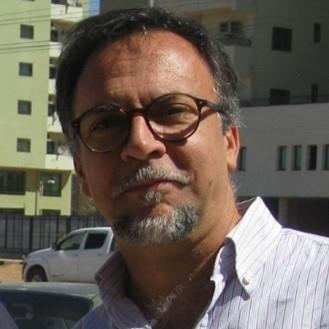 |
Mario ZappacostaSenior Economist and Team Leader Mario Zappacosta is a senior economist at UN FAO, with over 25 years of experience in analyzing food security at national and regional levels. He leads the FAO Global Information and Early Warning System for food and agriculture (GIEWS) that monitors food supply and demand in all countries across the world. Mr. Zappacosta has led several crop and food security assessment missions in countries experiencing imminent food crises, including Ethiopia, Syria, Sudan, South Sudan, Yemen, Myanmar and DPRK. He holds a PhD in Agricultural Economics from the University of Bologna, Italy. |
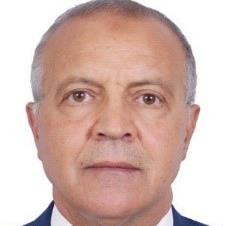 |
Mekki ChouibaniExecutive Director, Near East Plant Protection Organization Mekki Chouibani is the Executive Director of the Near East Plant Protection Organization (NEPPO), a regional organization. He was appointed in 2010. NEPPO aims to promote a regional coordination and cooperation to protect plants, forests and biodiversity by preventing the spread and entry of pests; an appropriate management of plant pests (IPM) and to promote international safe trade by implementing regional and international standards phytosanitary measures. Mekki is also facilitator of PCE and Global Beyond Compliance. Founding member of the Moroccan Protection of Plants Association. In 1982, Mekki received his Master's degree in Plant Protection from Agronomy and Veterinary Hassan II Institute in Rabat (Morocco). He joined the Moroccan Ministry of Agriculture (Directorate of Plant Protection, Technical Control and Fraud Control- DPVCTRF- Moroccan NPPO) as responsible of the bacteriology laboratory (Member of bacteriological Panel of EPPO), and then head of the Plant health and integrated pest management Unit. In 2002, as a head of the Technical Control and Plant Protection Department within DPVCTRF, Mekki was in charge of pesticide’s registration, surveillance, phytosanitary system, forest protection, control of birds and rodents (harmful to agriculture), registration and certification of seeds and seedlings and the protection of plant varieties (propriety right). In 2009, after the establishment of the Plant Protection Department and National Food Security Office (Office National de la Sécurité Sanitaire des produits Alimentaires -ONSSA), he was the head Plant protection Department |
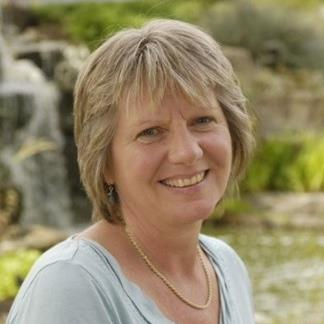 |
Suzanne SharrockDirector of Global Programmes, Botanic Gardens Conservation International Presentation: Suzanne Sharrock is Director of Global Programmes at Botanic Gardens Conservation International (BGCI). In this role, she is responsible for a number of projects, including the International Plant Sentinel Network, and leads BGCI’s work on plant conservation policy. Suzanne works closely with the Convention on Biological Diversity (CBD), providing the Secretariat for the Global Partnership for Plant Conservation which supports the implementation of the Global Strategy for Plant Conservation, a programme of the CBD. Before joining BGCI, Suzanne was a Senior Scientist with Bioversity International, working on plant genetic resources issues in a number of countries around the world. |
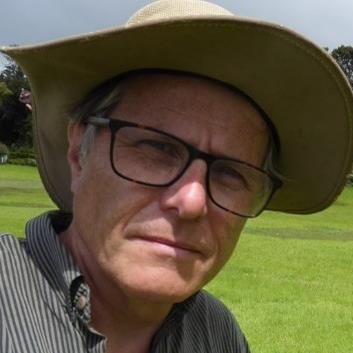 |
Philip TaylorPlantwise trainer and coordinator, Centre for Agriculture and Bioscience International (CABI) Presentation: Philip Taylor gained a first-class honours degree in Plant Sciences from Wye College; University of London in 1982. He then pursued an academic career path with a PhD at John Innes Institute on the Downy mildew of pea and these studies led on to two post-docs one in Illinois and one in Durham UK. Subsequently he became a lecturer in molecular plant pathology at the university of Hull UK. He then gave up the academic life to become a farmer, successfully running a large commercial farm taking it into organic, and GM production as well as conventional production. He represented the National farmers union on biotechnical matters as part of their working party. Years later another change of tack took him to CABI as part of the international development group and he became the training manager for Plantwise a large donor funded programme designed to bolster extension services in developing countries. He has travelled extensively in this role. |
 |
Sarah BrunelImplementation Facilitation Unit Deputy Lead for the IPPC Secretariat Presentation: Sarah Brunel is a French engineer in Agriculture. She has over 20 years of progressive national, regional and global experiences in plant protection, as well as environmental protection and capacity development. She authored over 50 publications in these fields. In her current position as Officer in charge of the Implementation and Facilitation Unit of the International Plant Protection Convention (IPPC) Secretariat, she is in charge of overseeing the activities of the Implementation and Capacity Development Committee (IC). She oversees all IPPC implementation and capacity development projects – currently six projects - and she is the lead for the new IPPC development agenda on “Strengthening Pest Outbreak Alert and Response Systems”. She leads the Phytosanitary Capacity Evaluations and supervised the application of this tool in various regions of the world, namely Barbados, Comoros, Fiji, Guinea, Nepal, Madagascar, Palestine, Nicaragua, Sri Lanka, South Sudan and Tunisia. She is also the IPPC focal point for the “One Health” FAO Programme Priority Area. She has proven records of fruitful collaboration and resource mobilization with institutions, in particular with the Comité de Liaison Europe-Afrique-Caraïbe-Pacifique (COLEACP), which translated in the signing of a Memorandum of Understanding with FAO. |
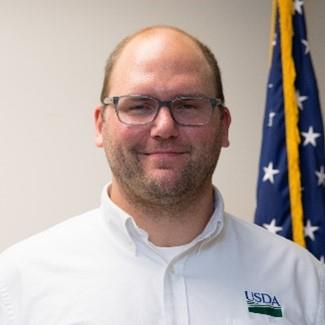 |
John CroweNational Policy Manager, United States Department of Agriculture (USDA) Presentation: John is the National Policy Manager covering all Pest Surveillance activities for PPQ, this includes the Cooperative Agriculture Pest Survey (CAPS), PPQ Pest Detection Survey, Port Environs Survey and Plant Protection Act Section 7721 Goal 1 Survey. These programs establish a framework for APHIS’ pest surveillance mission. John is also serving as the National Survey Supply Coordinator. In this role, I work extensively with internal and external partners to deliver high quality insect traps and lures for APHIS survey programs. John started working for APHIS at the port of Chicago and has managed survey work in Maine, New Hampshire and Vermont |
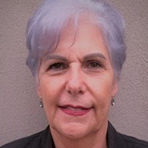 |
Magda Gonzalez ArroyoDirector, Standards and Regulations Department (DNR), Costa Rica Presentation: Magda is an Agronomical Engineer from the University of Costa Rica and a specialist in Plant Production. Currently retired, occupied as a technical consultant. She worked within the NPPO of Costa Rica for 33 years performing as Director of Costa Rica NPPO for 4.5 years, including IPPC Contact Point, oversaw Export Certification for 22 years, and managed Standards and regulations, including supporting the NRO and PRA activities of the NPPO for seven years. Magda participated as a Member of Technical support groups on SPS issues in various Free Trade Agreements and phytosanitary negotiations regarding export/import regulations with trade partners. She has experience developing technical regulations related to phytosanitary matters, including revising draft ISPMs at the national level and in activities regarding applying the PCE tool in Costa Rica-NPPO. Magda was a Member of the Standards Committee and now is an expert member of the Implementation and Capacity Development Committee. |
DAY 2 | 22 September 2022 | |
ENVIRONMENTAL PROTECTION | |
II PLENARY SESSION - Climate Change and the Impacts on Plant Health | |
 |
Stephanie BloemExecutive Director, North American Plant Protection Organization (NAPPO) Stephanie Bloem is the Executive Director for NAPPO, the Regional Plant Protection Organization representing Canada, the United States and Mexico. In her role as Executive Director, she manages the NAPPO Secretariat’s human and financial resources while leading the fulfillment of the NAPPO Executive Committee’s Strategic Plan, yearly Work Program and priority goals for North America. Stephanie was born in Mexico and grew-up in Guatemala. She has an undergraduate in Biology from Universidad del Valle de Guatemala and a Doctorate in Entomology from the University of California at Davis. Before joining NAPPO in mid-2015, she was a risk analyst and training specialist in the NPPO of the United States (USDA-APHIS-PPQ), where her responsibilities included development and review of pest risk analyses for import and export of agricultural commodities for consumption and propagation and the design, development and delivery of pest risk analysis workshops. While working for the NPPO of the United States, Stephanie was also an Adjunct Professor in the Department of Entomology at North Carolina State University (NCSU). In collaboration with Professors at NCSU, Stephanie was the lecturer for two semester-long classes in regulatory plant protection entitled – Challenges in Plant Resource Protection and Introduction to Pest Risk Analysis. Prior to working with USDA-APHIS-PPQ, Stephanie was an accomplished researcher and subject matter expert in the area of Sterile Insect Technique and Inherited Sterility for several quarantine-significant plant pests. During her career she has authored more than 60 peer reviewed scientific publications and several book chapters. |
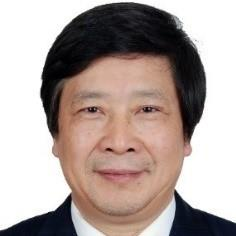 |
Jingyuan XiaDirector, Plant Production and Protection Division (NSP), FAO Presentation: Dr. Jingyuan is the Director of Plant Production and Protection Division (NSP) of the FAO. Prior to his present position, from 2015-2019, he was the Secretary to the International Plant Protection Convention (IPPC) at FAO Headquarters in Rome. Before joining the FAO, from 2012 to 2014, Mr. Xia was serving as Permanent Representative and Minister Plenipotentiary at the China Mission to the United Nations Agencies for Food and Agriculture in Rome. Between 2001 and 2011, he served as Director General and Extension Professor at the National Agro-Tech Extension and Service Center (NATESC) of the Ministry of Agriculture in Beijing. During 1982-2010, he worked at the China Cotton Research Institute (CCRI) of the Chinese Academy of Agricultural Sciences (CAAS) in Anyang, holding positions as Assistant Director General, Deputy Director General and Director General as well as Research Professor. Mr Xia, holds a Doctor of Philosophy in Entomology from Wageningen University and Research Center in the Netherlands, a Master of Science in Entomology from the University of Philippines, and a Bachelor of Science in Agronomy from the Central China Agriculture University. |
 |
Glenn FowlerRisk Analyst, United States Department of Agriculture (USDA) Presentation: Dr. Glenn Fowler has over 20 years of experience as a risk analyst with the United States Department of Agriculture, Animal and Plant Health Inspection Service (APHIS), Plant Protection and Quarantine. His areas of interest include predictive mapping, quantitative risk analysis, and climate change. Glenn is a member of the International Plant Protection Convention Focus Group on Climate Change and Phytosanitary Issues and the APHIS Science Committee’s Climate Change Subcommittee. |
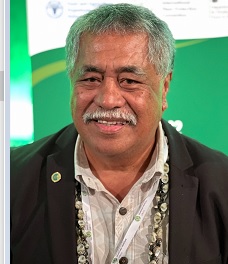 |
Ngatoko Ta NgatokoDirector of Biosecurity Service, Ministry of Agriculture Cook Islands Presentation:
|
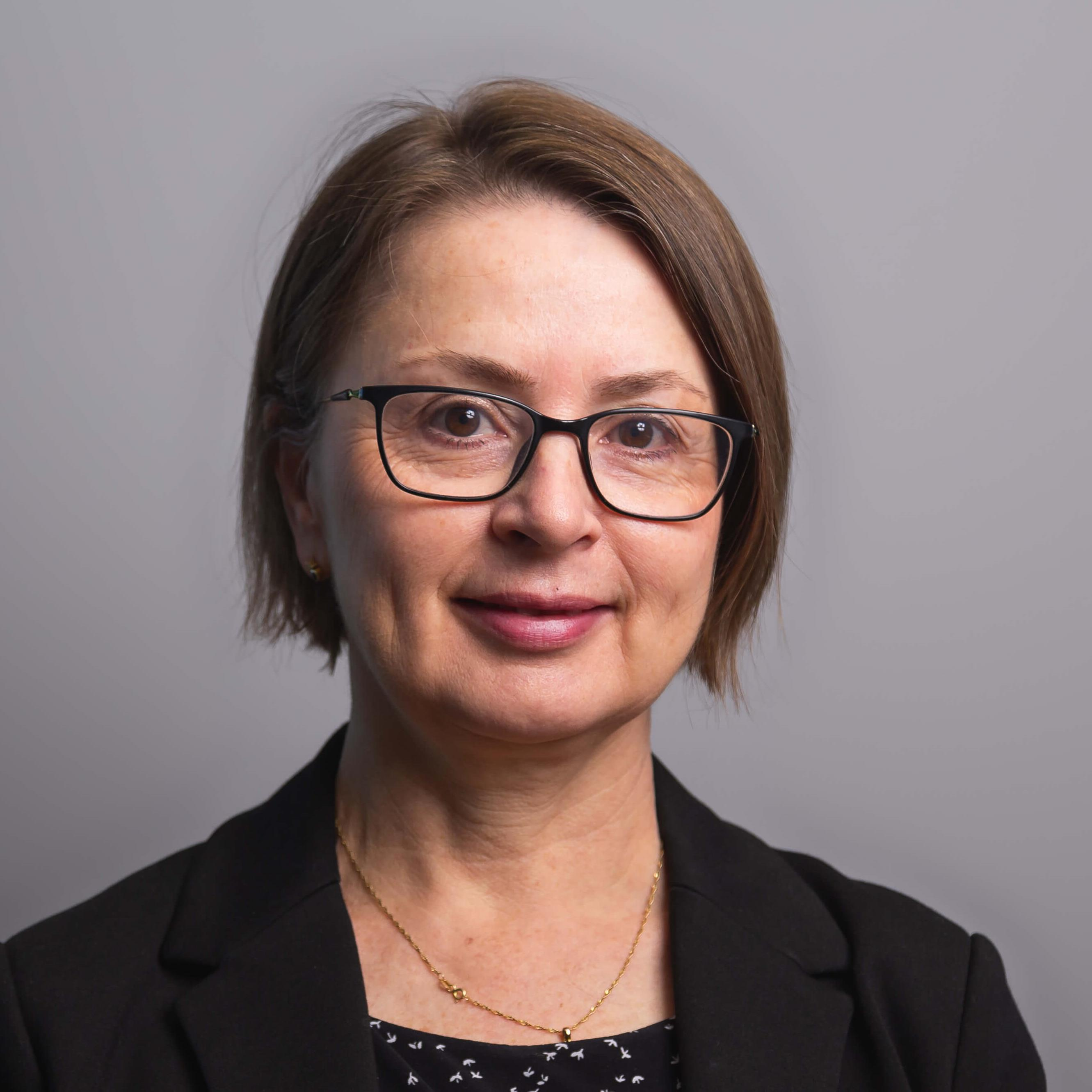 |
Gabrielle Vivian-SmithChief Plant Protection Officer of Australia Presentation: Dr Gabrielle Vivian-Smith is the Chief Plant Protection Officer of Australia and Australia’s Delegate at the International Plant Protection Convention’s Commission for Phytosanitary Measures. Dr Vivian-Smith leads Australia’s national responses to emergency plant pest and disease incursions. Her work aims to protect Australia's plant-based industries and the natural environment from harmful exotic plant pests and diseases. |
Parallel Sessions | |
 |
Ulrich KuhlmannExecutive Director, Global Operations, CABI Ulrich (Ulli) has worked for CAB International (CABI) for the past 25 years, starting out by heading CABI Switzerland’s arthropod biological control research programme. In 2010, Ulli was appointed as Regional Director, CABI, Switzerland, as well as Programme Executive of Plantwise - CABI’s award-winning global programme, which has helped millions of farmers in 34 countries to diagnose and treat pest threats on their farms and reduce crop losses by strengthening national plant health systems. In 2016, Ulli moved to his current position of Executive Director, Global Operations, overseeing the management and operation of CABI at its eleven centres across Asia, Africa and Europe & the Americas. Alongside this role, Ulli is also the professional lead for science within CABI, responsible for overseeing the strategic direction and delivery of the scientific programme. |
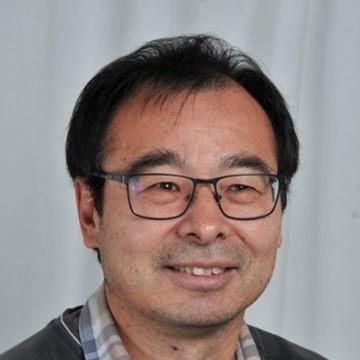 |
Xiangming XuHead of Science, National Institute of Agricultural Botany, UK Presentation: Xiangming is the Head of Science, NIAB East Malling since 2020. He is one of leading plant disease epidemiologists worldwide. In addition to co-ordinating research at NIAB East Malling, he leads a research group focusing on elucidating quantitative epidemiology of diseases on annul and perennial crops, including wheat, top/soft fruit and ornamental species, to develop and implement integrated disease management strategies. He has also been continuously engaging in theoretical modelling of plant disease dynamics and biocontrol of foliar pathogens. Recently, he has been engaged in understanding plant-associated microbiome in relation to plant health and introduction of beneficial microbes, including research on the fate of biocontrol strains in cropping environment. He has published more than 210 papers in peer-reviewed journals. |
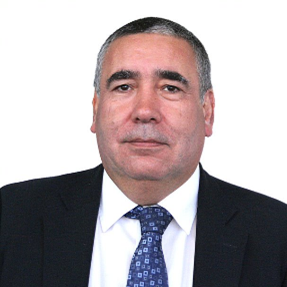 |
Rui Cardoso-PereiraHead the Insect Pest Control Section Presentation: Dr. Rui Cardoso Pereira is an entomologist and the Head of the Insect Pest Control Section, Joint FAO/IAEA Division of Nuclear Techniques in Food and Agriculture in Vienna, Austria. He received his B.S in Agronomy and M.S in Integrated Pest Management from Technical University of Lisbon before becoming field operations head and latter program director of Madeira-Med, in Madeira Island, Portugal. After, he received his Ph.D. in Entomology and Nematology at the University of Florida, Gainesville FL, USA. The dissertation “Influence of a juvenile hormone analogue and dietary protein on male Caribbean fruit fly, Anastrepha suspensa (Diptera: Tephritidae), sexual behavior” received the “Deparment´s Mulrennan Outstanding Ph. D. Student Award”. Immediately after, conducted research with the objective of technology transfer of the use of methoprene and protein to improve male sexual performance of mexfly at the USDA, Mission TX, USA. In 2007, he joins the Insect Pest Control Section at the IAEA, in Vienna. Since then he have been providing technical support to more than 50 Technical Cooperation Projects of the IAEA around the world and serve as Scientific Secretary of 3 Coordination Research Projects of the FAO/IAEA. In 2017 he was appointed as Head of the Insect Pest Control Section. He was member of the IPPC Technical Panel on Pest Free Areas and Systems Approaches for Fruit Flies (TPFF). Also, since 2014 he was appointed as chair of the International Fruit Fly Steering Committee. |
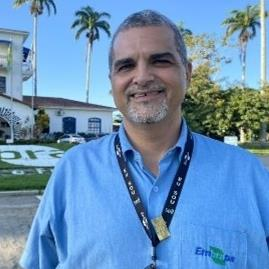 |
Francisco Ferraz Laranjeira BarbosaResearcher, Embrapa Cassava & Fruits, Brazilian Agricultural Research Corporation Presentation: Francisco Ferraz Laranjeira is an agronomist and specialist in Plant Protection (Federal University of Viçosa, UFV, 1997), Master and PhD in Phytopathology (University of São Paulo, USP, 2002), and MBA in Project Management (USP, 2021). He was a visiting scientist at the University of Cambridge (Mathematical Biology, 2010) and Rothamsted Research (Computational Biology, 2012). Researcher at Embrapa Cassava and Fruits since 2001, he is the current Director General. From 2015 to 2022 he worked as coordinator of Embrapa´s plant health portfolio. He works on plant disease epidemiology, ecology of plant pathogens and biomathematical methods. He also works on innovation management, with emphasis on prioritization models, decision-making in projects’ portfolios and articulation of translational research with the private sector. He is instructor and moderator of Analytic Hierarchy Process (AHP). His main lines of research are the spatio-temporal dynamics of pathosystems and the use of epidemiological tools for plant health management. |
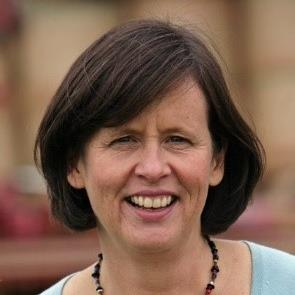 |
Roma GwynnVice President, International Biocontrol Manufacturers Association (IBMA) Presentation: Roma Gwynn is a biorational and IPM specialist working within this area for nearly 40 years initially as a research scientist then working for biocontrol companies and now as an independent specialist working internationally. Her expertise is in facilitating the process of getting biorational products onto into the hands of farmers by streamlining bio-discovery, product development, registration, efficacy testing and marketing and had worked as an expert with OECD, the EU, and FAO/WHO. Roma is the Vice-President of International Biocontrol Manufacturers Association. |
 |
Chonticha RakkraiDirector of Plant Quarantine Research Group, Department of Agriculture, Thailand Presentation: Chonticha Rakkrai is a Director of Plant Quarantine Research Group, Department of Agriculture in Bangkok, Thailand. She is responsible for diagnostic pest of plant and plant product for import and export and she is a standard committee membership. |
Parallel Sessions | |
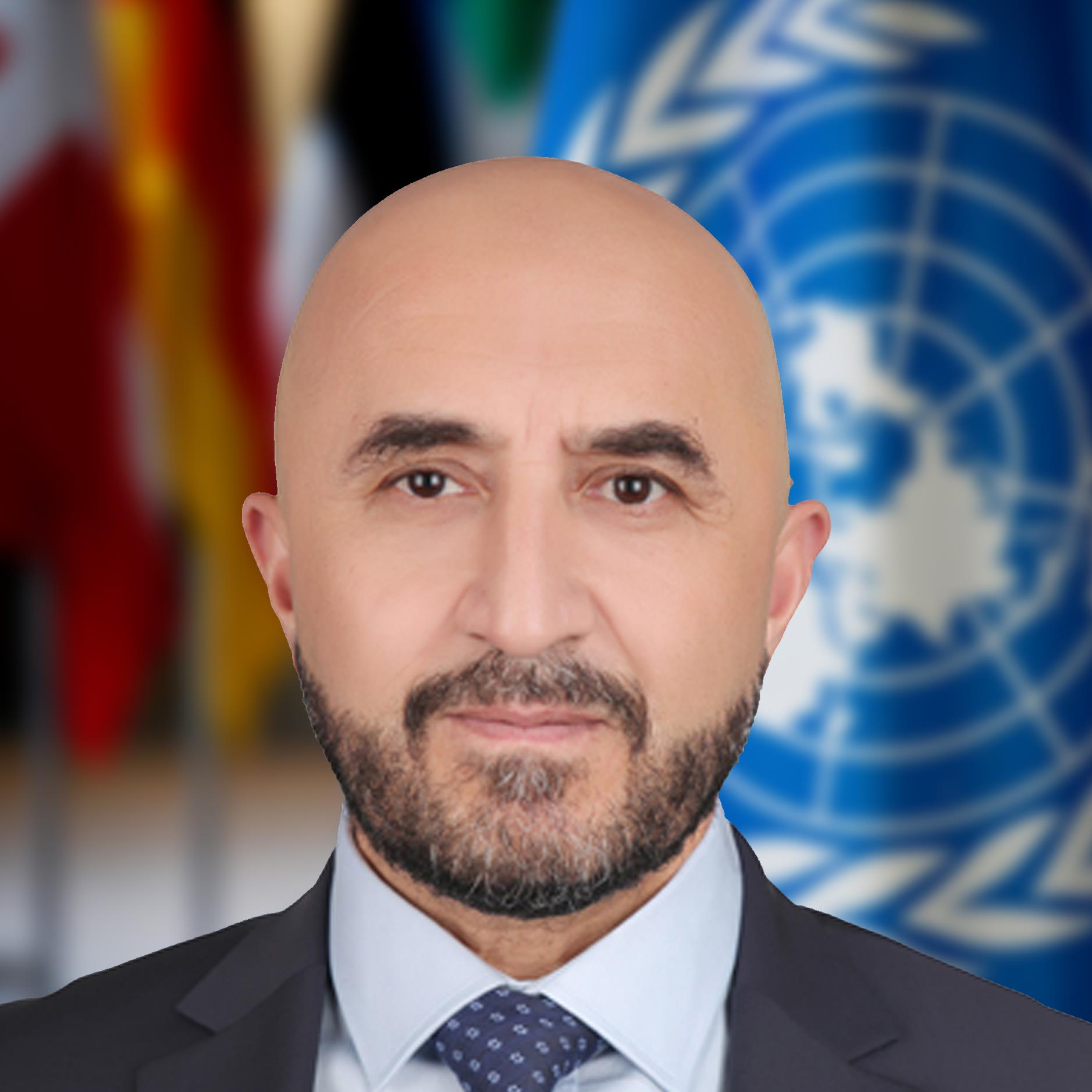 |
Hafiz MuminjanovTechnical Adviser, Plant Production and Protection Division Hafiz has more than 30 years’ experience in the fields of agriculture and rural development, with a focus on conducting research and supporting the extension, training agriculture specialists, and formulating, managing, implementing, and monitoring the development and emergency projects. Since 2010 he works for the UN Food and Agriculture Organisation (FAO). Currently, he is coordinating the FAO Global Action on Green Development of Special Agricultural Products: “One Country One Priority Product” (OCOP) and the Global Programme on Sustainable Dryland Agriculture. His Academic and Technical Areas of Expertise are: Sustainable Crop Production Intensification, Conservation Agriculture, Plant Health, Phytosanitary Control, Plant Pests and Diseases, Integrated Pest Management, Organic Farming, Seed Systems, Plant Breeding, Protected Cultivation, etc. He has authored more than 200 scientific papers, textbooks and extension materials including authorship for two potato and 20 wheat varieties released in Tajikistan and two patents granted for scientific inventions in biotechnology and plant breeding. He supported a number of countries to improve the national seed, plant protection, organic agriculture and pesticide management legislations and to strengthen the institutional framework. |
 |
Irene HoffmannSecretary, Commission on Genetic Resources for FAO Presentation: Ms Irene Hoffmann is the Secretary of the Food and Agriculture Organization of the United Nation’s (FAO) Commission on Genetic Resources for Food and Agriculture. Between 2002 and 2015, she was Chief of the Animal Genetic Resources Branch and Chief of the Animal Production Service in FAO, and acted as Secretary of the Intergovernmental Technical Working Group on Animal Genetic Resources. Irene is an agricultural scientist with a Ph.D. from Hohenheim University and an MSc from Göttingen University. Between 1994 and 2002 she was assistant professor at the Institute of Livestock Ecology, Giessen University, where she coordinated international and interdisciplinary research programmes. Earlier in her career she worked in development (GIZ, Africa), as scientific editor, and for development NGOs. She has organized international policy and technical conferences and published extensively on scientific and policy topics, and she has served in various advisory committees and review panels. |
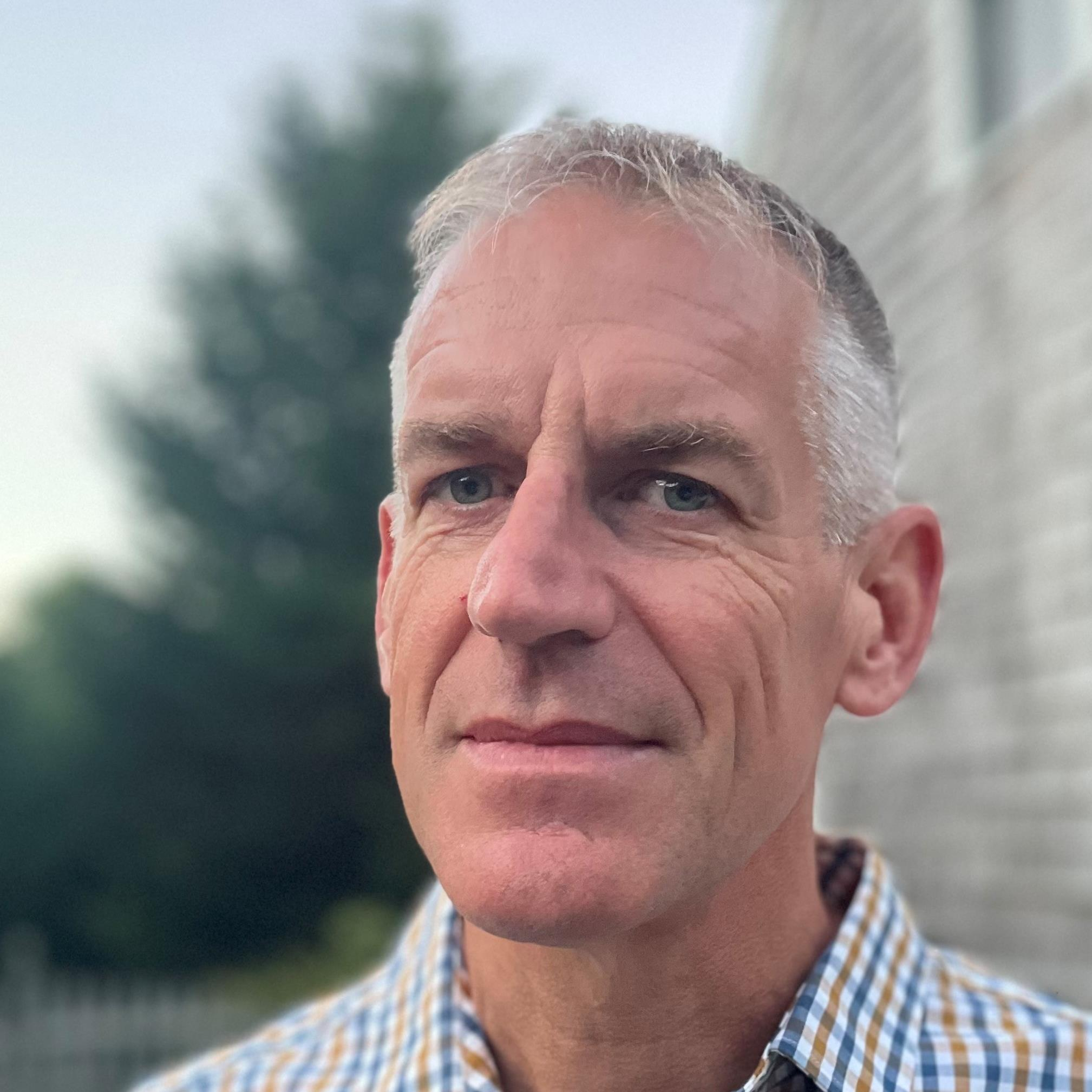 |
Scott MyersAssistant Laboratory Director Presentation: Scott Myers is the Assistant Laboratory Director at USDA APHIS Plant Protection and Quarantine, Forest Pest Methods Laboratory. He has more than 15 years of experience working on phytosanitary issues for the USDA. His current research responsibilities are broadly focused on improving phytosanitary measures and developing alternatives to methyl bromide use for import and export and domestic movement of commodities. Scott has served on the IPPC Technical Panel for Phytosanitary Treatments since 2014. He also contributes to the Phytosanitary Measures Research Group in support of IPPC efforts to harmonize research on phytosanitary treatments. Scott received his PhD in entomology from the University of Wisconsin-Madison. |
 |
Rama KarriDirector Presentation: Rama Karri has a Masters Degree in Horticultural Science from the University of Western Sydney. He is a Director in the Australian Department of Agriculture, Fisheries and Forestry with over 10 years of experience in establishing regulatory settings for managing contaminants and contaminant pests. He has significant experience in establishing quality systems in overseas ports to manage pest risks associated with inanimate pathways. He is also a member of the Commission on Phytosanitary Measures (CPM) Focus Group (FG) on Sea Containers, representing Pacific Plant Protection Organisation members. |
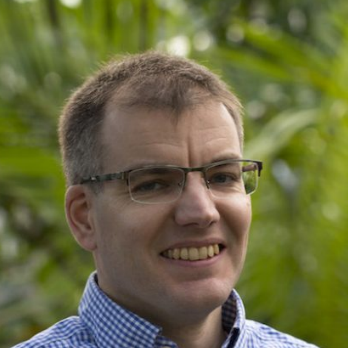 |
Richard BuggsLead, Plant Health and Adaptation research group at Kew Gardens, London, UK Presentation: Richard Buggs is currently Senior Research Leader (Plant Health & Adaptation) at Royal Botanic Gardens Kew, and Professor of Evolutionary Genomics at Queen Mary, University of London. This is a personal webpage and views expressed here are expressed in a personal capacity. Previously Richard was a Research Fellow at Queen Mary, University of London, funded by the Natural Environment Research Council (NERC) to work on the genetics of birch tree species in the UK. He examined the effects of hybridisation and population size on the evolution and conservation of dwarf birch, a nationally scarce species. Before this, Richard was a post-doctoral research associate at the University of Florida, in the lab of Doug and Pam Soltis examining the evolutionary genetics of plant species with different numbers of chromosome sets. He studied the rapid loss and silencing of genes in new plant species that arose from natural whole genome duplication events. He holds a DPhil from the University of Oxford for a doctoral thesis on the evolutionary ecology of two closely-related plant species in Spain. He received his undergraduate education at the University of Cambridge, where he was elected Bateman Scholar at Trinity Hall, and gained a first class Bachelor’s degree in Natural Sciences. |
Parallel Sessions | |
 |
Gerry SaddlerChief Plant Health Officer, Scotland Professor Gerry Saddler is the Chief Plant Health Officer for Scotland and the Head of SASA, a Division of the Scottish Government. After completing his PhD in microbiology from the University of Newcastle Upon Tyne, he spent 4 years as an industrial microbiologist in Switzerland and Italy. He returned to the UK to take up a post as a bacteriologist at CABI Biosciences, running a diagnostics service and researching bacterial pathogens of potato. He has more than 30 years’ experience working specifically with Ralstonia solanacearum, Clavibacter michiganensis subsp. sepedonicus and the blackleg pathogens Pectobacterium and Dickeya spp. He joined SASA in 2001 and has served as Chief Plant Health Officer for Scotland and Head of SASA since April 2017. He has an honorary professorship from Heriot-Watt University, Edinburgh. |
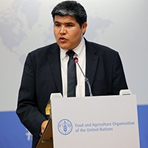 |
Ronald VargasSecretary, Global Soil Partnership (GSP), FAO Presentation: Ronald Vargas, Secretary of the FAO’s Global Soil Partnership, is a leading global soil scientist who has dedicated over 20 years to investigating natural resource management with a special focus on scaling up sustainable soil management for food security and ecosystem services. His career trajectory champions the essential need to have healthy soils for resilient global food production systems and nutrition, and he views the agricultural productivity of smallholders as vital to achieving the biggest development challenges of our time – simultaneously alleviating poverty and ensuring food security for all. He joined the UN’s Food and Agriculture Organisation (FAO) in 2011 as a Land and Water Officer, becoming the Secretary of the Global Soil Partnership (GSP), which he played an instrumental role in setting up in 2012. The Partnership is now celebrating a decade of progressive action towards the fulfilment of the global development agenda. |
 |
Jonathan LeakeProfessor, Sheffield University & Sustainable Soil Alliance Presentation: Jonathan Leake F.I. Soil Sci. is Professor of Plant-Soil Interactions at the University of Sheffield, and Scientific Advisory Panel Member for the Sustainable Soils Alliance. His research has investigated how plants and soil microorganisms interact to deliver sustainable, healthy soils. In collaboration with UK farmers and colleagues at the University of Sheffield, he has been studying regenerative agriculture using leys in arable rotations to improve soil health and generate soil microbiomes that suppress crop pathogens. |
 |
John WilliamsHead of Soils and Nutrients, ADAS Presentation: John is Head of the ADAS Soils and Nutrients Group and is an internationally recognised specialist on soil and nutrient management and the mitigation of agricultural diffuse pollution of the air and water environments. He is a Chartered Scientist and provides strategic policy advice to Defra, Welsh Government, Levy bodies and water companies. He has over 30 years’ experience of leading large collaborative research projects focusing on improved nutrient management and the environmentally sustainable recycling of organic materials to land. John is a member of Defra’s Nutrient Management Expert Group, Technical Adviser for the UK Water Industry’s Biosolids Assurance Scheme and a Council Member of the International Fertiliser Society. |
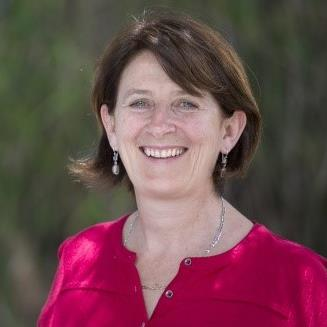 |
Dannie RomneySenior Global Director, Development Communication and Extension, CABI Presentation: Dannie Romney is CABI’s global director for Development, Communication and Extension (DCE), one of CABIs four themes. The DCE theme focuses on activities to facilitate or support ‘research into use’ and building capacity in countries to address key agricultural issues related to plant health, soil health, seed production and other areas. Dannie has been based in Kenya for the last 22 years working with CABI and previously with the International Livestock Research Institute looking at feed resources and nutrient cycling and innovation systems approaches. She has supported work in Africa, Asia and to some extent Latin America. Thematic work includes development and research related to different approaches in agricultural advisory services and communication using digital and face-to-face approaches. Her role is to provide strategic and technical leadership in this thematic area. She has more than 30 years’ experience in designing, implementing, and managing research and development projects. |
DAY 3 | 23 September 2022 | |
SAFE TRADE | |
III PLENARY SESSION - Facilitating Safe Trade and Economic Development | |
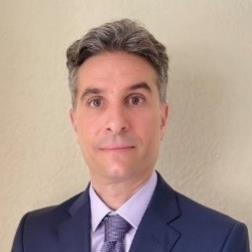 |
Rolando AlcaláEconomic Affairs Officer, Agriculture and Commodities Division, World Trade Organization Rolando Alcalá has worked for the WTO since 1999 in various positions, most recently as an Economic Affairs Officer in the Agriculture and Commodities Division. The main focus of his work is the Agreement on the Application of Sanitary and Phytosanitary Measures and his current tasks relate to the work of the SPS Committee, settlement of SPS-related disputes and technical assistance. Before, Rolando worked as a Statistical Officer in the Economic Research and Statistics Division, and as a Training Officer in the WTO's Institute for Training and Technical Cooperation. Rolando has an MBA from Case Western Reserve University, and degrees in Econometrics and Economics from the University of Geneva. |
 |
Greg WolffSenior Director, Canadian Food Inspection Agency Presentation: Gregory Wolff began his government career in agricultural crop protection with the Government of Alberta in 1996 after completing plant pathology-focused studies at the University of Hertfordshire under the guidance of the much-esteemed Dr. Avice Hall. He joined the federal government of Canada in 2000 and has held a variety of positions focused on plant health and international trade, based mostly in the Canadian Food Inspection Agency (CFIA), which is the National Plant Protection Organization for Canada as recognized by the International Plant Protection Convention. Greg is currently Senior Director of the Plant Export Division in the CFIA’s International Affairs Branch, which includes responsibility for leading the CFIA’s work with the North American Plant Protection Organization and the International Plant Protection Convention. |
 |
Josiah SyandaPhytosanitary Expert, Kenya Plant Health Inspectorate Service (KEPHIS) Presentation: Mr. Josiah Syanda is a Deputy Director at Kenya Plant Health Inspectorate Service, the Kenya NPPO and also the African Representative at the IPPC ePhyto Steering Group. Mr. Syanda is a Phytosanitary expert, with more than 20 years’ experience in Phytosanitary processes and compliance. His expertise and competence includes setting up Phytosanitary systems, business process analysis, trade facilitation, ICT applications and system integrations, Phytosanitary policy frameworks for local and international trade of plants and plant products. He has continued to play a lead role and providing expertise to countries implementing automated phytosanitary certification systems. |
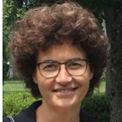 |
Hélène KleinHead of Sector TRACES, European Commission - DG SANTE Presentation: Dr Hélène Klein is the Head of Sector TRACES-IMSOC, European Commission, Directorate General for Health and Food Safety at DG SANTE-Brussels, Directorate G “Crisis preparedness in food, animals and plants”, Unit G3“Official Controls”Hélène joined the European Commission in 2002 as a legislative veterinary officer and after 16 yearsRaúl Rodas Regional Director of Quarantine Services, International Regional Organisation for Animal and Plant Health (OIRSA) of responsibility for different files in DG SANTE in the area of animal health, she was appointed TRACES business manager in charge of the day-to-day operations and of guiding its development. Since 1 January 2021, she is the European region member of the IPPC ePhyto Steering Group and the IPPC ePhyto solution single contact point for the European Union. In that context, her role is to promote the use of the ePhyto Solution in any possible fora. As TRACES is connected via a single connection to the Hub for the 27 Member States of the EU, Switzerland and Northern Ireland, she is acting as contact point for their trading partners interested in paperless data exchange with TRACES using the ePhyto Solution, in accordance with EU legislation. |
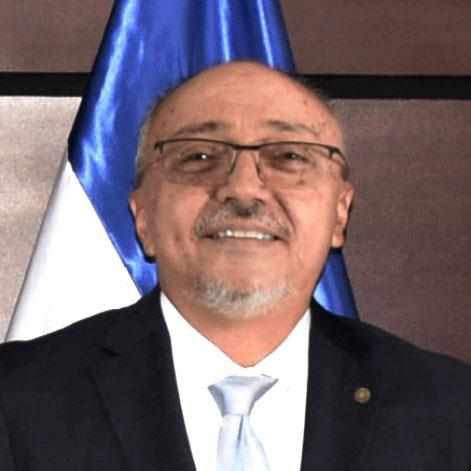 |
Raúl RodasRegional Director of Quarantine Services, International Regional Organisation for Animal and Plant Health (OIRSA) Presentation: Mr. Rodas joins the OIRSA team in 2000, holding various positions in the organisation. He possesses a broad professional experience and expertise in crop protection, promotion of agribusiness, trade facilitation, management of admissibility of new products, attention to emergencies for quarantine pests and diseases, management and implementation of projects and programmes in plant protection and agricultural quarantine, border biosecurity, regional and international sanitary standards and quarantine treatments. Raul holds an Agronomical Engineering degree from the Honduras National University, and a master’s degree in Sanitary and Phytosanitary Measures from the Postgraduates College in Mexico. At present, he is OIRSA’s Regional Director of Quarantine Services. Amongst his current responsibilities at OIRSA, he supports the member countries in strengthening their national quarantine services, promoting harmonization of procedures, risk analysis, diagnostic capacities, risk based inspection of cargo and luggage, strengthening of human resources, incorporation of new inspection and quarantine treatment technologies, and facilitating regional trade. |
 |
Phillippe BinardGeneral Delegate, Freshfel Presentation: Philippe Binard joined the fresh fruit and vegetables business in 1987. Since 2001, he is the General Delegate of Freshfel Europe, the European Association representing the interest of the fresh fruit and vegetables sector that incorporates more than 200 members (associations and companies) across the fresh produce supply chain from production down to retail. Since 2001 Philippe is the Secretary General of World Apple and Pear Association and since 2019, he is the Secretary General of World Citrus Organization. Before Freshfel Europe, Philippe was the Secretary General of Southern Hemisphere Association of Fresh Fruit Exporters.During his career, Philippe Binard hold other positions including General Delegates of European Fresh Fruit and Vegetables Importers Association from 1992 to 2001; Secretary General of European Cold Storage and Logistics Association from 1989 to 2002 and Secretary General of European Community Banana trade Association from 1993 to 2010. Philippe has a legal background from the University of Leuven (1984). He completed his education with several trainings with the European Commission and several banking institutions. |
Parallel Sessions | |
 |
Kelvin HughesHead, Animal and Plant Health Agency Inspectorate Programme, UK Defra’s Chief Plant Health and Seeds Inspector working within the UK’s Animal and Plant Health Agency (APHA). I oversee import and export plant health control as wells as domestic surveys for plant pests and eradication campaigns for England and Wales. Prior to joining Defra’s inspection service I worked as a Plant pathologist within Defra’s diagnostic laboratory. Here I helped diagnose quarantine pests and diseases as well as developed various laboratory and on-site test methods. I also managed the laboratories export team which tested plants and plant products for international shipment to ensure they met the phytosanitary requirements for importing countries. |
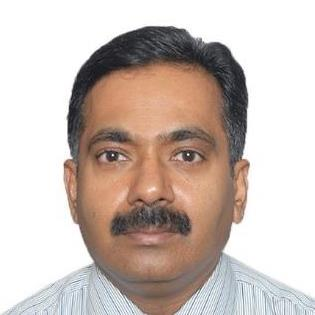 |
Venkat VenkateswaranChief Application Delivery, United Nations International Computing Centre (UNICC) Presentation: Mr. Venkatram Venkateswaran (Venkat) is an accomplished Information Technology professional with 30+ years of experience and proven ability to deliver business value and innovative solutions supporting processes and strategy. He has a graduate degree in Information Technology coupled with post-graduate degree in management studies and Digital Business including various professional certifications. Currently he is the Head Applications Delivery for the United Nations International Computing Centre based in Geneva developing and supporting Digital products and Solutions for various United Nations agencies and partners. His team is responsible for the design, implementation and management of the IPPC ePhyto Solutions (HUB & Generic National System – GeNS). The team is also actively involved in facilitating, training, supporting and on-boarding countries to the ePhtyto solution. He has also been closely working with IPPC as a member of the ePhyto Project Steering Committee, CPM Focus Group on Sustainable Funding for the ePhyto Solution and WTO-STDF SPS Electronic Certification Advisory Committee (ECAC). |
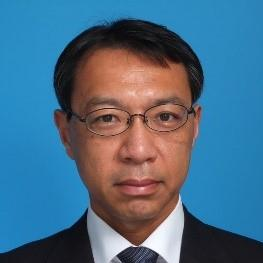 |
Norihide HinomotoProfessor, Kyoto University Presentation: Norihide Hinomoto is professor, Graduate School of Agriculture, Kyoto University. His research has focused on Integrated Pest Management, especially biological control of small arthropod pests in horticulture. To evaluate biological control agents he uses molecular markers, such as microsatellite markers to analyze population structure, species specific markers for molecular gut-contents analysis, and sequencing for molecular phylogeny. Currently he is a project manager under the national research project "Moonshot R&D Program", in which new IPM systems is developed. |
 |
Ceren ErdoganDeputy Director, GIZ, Global Alliance for Trade Facilitation Presentation: Dr. Ceren Erdogan is a Team Leader at the German Agency for International Cooperation’s (GIZ) Trade Facilitation Practice. She also serves as the Deputy Director GIZ at the Global Alliance for Trade Facilitation where she leads a team that implements projects on digitizing phytosanitary certificates to facilitate agricultural trade in cooperation with the IPPC, e.g. in Ecuador, Jordan, Senegal and Thailand. Ceren previously worked for GIZ as a Project Planning Officer, a job which took her all over the world, to set up international cooperation projects in the field of trade. Ceren holds a PhD in International Economics. Her particular area of expertise is trade facilitation and regional economic integration in developing countries. Before joining GIZ in 2017, she worked as a lecturer, researcher and consultant in various academic institutions. |
 |
Chip StarnsExecutive Vice President and Founder, Reveam Presentation: Chip Starns has over twenty years of managerial experience in operations and sales. He is the Co-Founder and Executive Vice President of Reveam; a leading linear accelerator technology company focused on solving some of the world’s problems using environmentally sustainable solutions. His experience includes serving as past President of the Council on Ionizing Radiation Measurements and Standards (CIRMS) and on the American Society for Testing and Materials (ASTM) International, Radiation Processing Committee. Prior to joining Reveam, Mr. Starns served as Senior Nuclear Engineer for Southern Company, overseeing nuclear refueling operations, and as Regional Manager for a national medical diagnostic imaging company. His career began as Supervisor of nuclear reactor and dive operations aboard nuclear fast attack submarines in the U.S. Navy. Mr. Starns earned a B.S. in Nuclear & Radiological Engineering from The Georgia Institute of Technology and is a graduate of U.S. Naval Nuclear Power School and U.S. Navy Dive School. |
Parallel Sessions | |
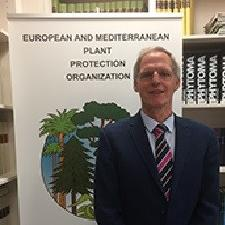 |
Nico HornDirector-General, European and Mediterranean Plant Protection Organization Nico Horn has been the Director-General of the European and Mediterranean Plant Protection Organization (EPPO) since 2019. He leads the implementation of the programme of work of EPPO, the Regional Plant Protection Organization (RPPO) for Europe and the Mediterranean region, and he leads the EPPO Secretariat staff team at the EPPO headquarters in Paris. He has a PhD in Plant Virology from the Wageningen Agricultural University based on field and laboratory research conducted in India on chickpea viruses. Before he started at EPPO, he worked for more than 20 years for the National Plant Protection Organization (NPPO) of the Netherlands. He was involved in the development of the EU Plant Health legislation as delegation leader for the Netherlands. Furthermore, he worked on phytosanitary requirements for import and export. He contributed to the IPPC work by participating in the development of International Standards for Phytosanitary Measures (ISPMs) as a member of drafting groups and as member of the IPPC Standards Committee. He also contributed to the development of ePhyto as a member of the IPPC ePhyto Steering Group and he was a member of the Sea Container Task Force (SCTF). The leading theme in his career has been the protection of plant health in a world with increasing trade and movements of goods and people. |
 |
Kyu-Ock YimResearch Officer, Animal and Plant Quarantine Agency, Republic of Korea Presentation: Kyu-Ock Yim, from the Animal and Plant Quarantine Agency at the Ministry of Agriculture, Food and Rural Affairs in the Republic of Korea. She has hands-on experience in Phytosanitary Measures, and since 1999 she has worked in the NPPO of Rep. of Korea for International organizations, bilateral cooperation, official development assistance projects, PRA for import, and research on plant pathology. She is also the chair of APPPC Standing Committee for Plant Quarantine. She has previously worked in the IPPC’s CRM bureau, been the Chairperson of IPPC Commission of Phytosanitary Measures, the Vice Chair of the FAO International Year of Plant Health Steering Committee, and the Chief organizer of the IPPC CPM-12 (hosted in the Republic of Korea). She holds a Ph.D. in Plant Science from the University of California, Davis. |
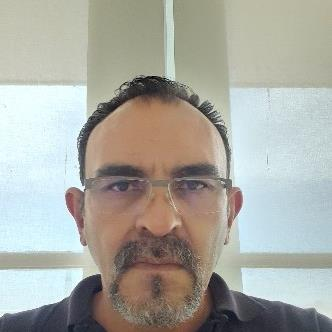 |
Clemente De Jesus Garcia AvilaCoordinador Presentation: Clemente was born in México. He studied agronomy at the Universidad Autónoma de Chapingo (Autonomous University of Chapingo); later, he got the degree of Master in Science at the Colegio de Postgraduados and a degree as Doctor of Science in Horticulture at the Universidad Autónoma de Chapingo. Since 2011 to date, he works for the National Plant Protection Organization of México (DGSV), which is part of the National Service for Agrifood Health, Safety and Quality (SENASICA, acronym in Spanish). His activities are focused in the development and execution of different projects, related to pest management. Currently, he is coordinator of the Phytosanitary Specialist Group of the National Phytosanitary Reference Center of the General Directorate of Plant Health (DGSV)-SENASICA. He is part of the National System of Researchers (2015 to date). He has participated as an evaluator of research projects; as a reviewer in several scientific journals. He has led thesis for Bachelor's, Master's and Doctorate in Sciences degrees. He also has collaborated in scientific articles, book chapters; as well as, reference materials (action plans, technical sheets, management measures, among others). |
 |
Alistair YeomansScheme Manager for the Plant Healthy Certification Scheme Presentation: Alistair is the Director of Plant Healthy Ltd., and works with the Plant Health Alliance which is a group of UK-based government agencies, trade associations and environmental NGOs that are working together to improve plant biosecurity in the UK and beyond. His role with the Alliance involves periodically reviewing the Plant Health Management Standard and working with the Plant Health Alliance members to roll out the Plant Healthy Certification Scheme to the trade and horticultural organisations. |
 |
Sam BishopHead of International Plant Health Policy, DEFRA, UK Presentation: Sam Bishop is the head of international plant health policy at the UK Department for Environment Food and Rural affairs.? He has been working in plant health for nearly 20 years and his experience includes development and implementation of legislation, setting phytosanitary import controls, development of domestic and international phytosanitary policy and standards and trade negotiations. |
Parallel Sessions | |
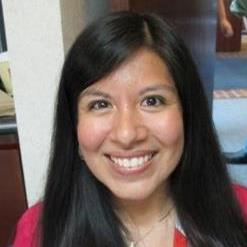 |
Patricia V. AbadDeputy Director, Western Hemisphere, United States Department of Agriculture Ms. Patricia Abad serves within the U.S. Department of Agriculture’s Animal and Plant Health Inspection Service (APHIS) Plant Protection and Quarantine Program (PPQ) as Deputy Director for the Western Hemisphere within the Phytosanitary Issues Management (PIM) unit, which facilitates and negotiates, through the use of scientifically based processes, the safe trade/ export and import of agricultural commodities for the United States. Ms. Abad has more than a decade of experience working on phytosanitary issues at APHIS with specialized expertise in international and bilateral trade negotiations and agreements, phytosanitary regulations and regulatory systems, plant health standard-setting, and consensus building among diverse stakeholders. From 2015-2021, Ms. Abad served for six years as USDA PPQ’s Technical Director for North American Plant Protection Organization (NAPPO) issues within the PPQ-International Phytosanitary Standards (IPS) team. In her role, she coordinated APHIS’ participation in NAPPO, collaborating on plant health harmonization efforts with Canada and Mexico in the Northern Hemisphere and globally. From 2008-2015, Ms. Abad was an International Trade Specialist with APHIS’ International Services. She also worked in the USDA Marketing and Regulatory Programs Undersecretary’s office and as Acting APHIS-International Services Agricultural Attaché based in San Jose, Costa Rica.?While in APHIS, she has completed the Senior Executive Fellows Program at Harvard University’s Kennedy School of Government. She holds a Master’s degree from the George Washington University’s Elliott School of International Affairs and a B.S. degree from North Carolina State University. |
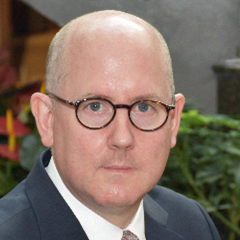 |
Brendan O'HearnDeputy Director, Procedures and Facilitation Sub-directorate, World Customs Organization Presentation: Mr. O’Hearn serves as the Deputy Director of the Compliance and Facilitation Directorate in charge of the Procedures and Facilitation Sub-Directorate at the World Customs Organization (WCO) where he directs the development, implementation and maintenance of international treaties, conventions, standards, guidelines and other trade facilitation and Customs procedure tools. He oversees a large staff and the preparation and execution of more than 20 Member driven committees, sub-committees and working groups, which includes the preparation of meeting agendas, documents and reports. Mr. O’Hearn also provides counsel to the Director, Deputy Secretary General and Secretary General on matters relating to the Sub-Directorate. From July 2013 to November 2019, Mr. O’Hearn served as both the U.S. Customs and Border Protection Attachéand Department of Homeland Security Attaché in Tokyo, Japan. In these positions, he managed a broad range Homeland Security, Customs and Immigration issues.He was also responsible for providing advice and counsel to U.S. Ambassadors to Japan Caroline Kennedy and William Hagerty, as well as numerous Japanese lawmakers, on Homeland Security issues. Mr. O’Hearn started his public service career with the U.S. Customs Service in 1995 as an Import Specialist at John F. Kennedy International Airport in New York. |
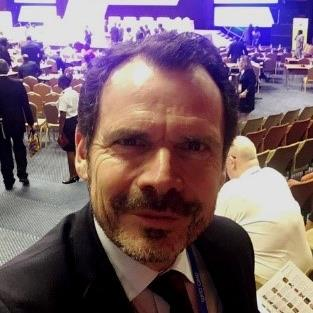 |
Dietmar JostCustoms and Security Advisor, Global Express Association Presentation: Dietmar Jost is a recognized international Customs and trade facilitation expert and the Customs and Security Advisor of the Global Express Association (GEA), which represents the three global express delivery companies DHL, FedEx and UPS. Dietmar has over 30 years of experience in the Customs and trade facilitation environment. He is a former German Customs officer as well as a WCO Senior Technical officer with professional experience in the Customs, supply chain security and trade facilitation domains. Dietmar was directly involved in the development of relevant international Customs instruments, standards and recommendations such as the WCO Revised Kyoto Convention, the Data Model, the UCR, the SAFE Framework of Standards, and lately the Framework of Standards on Cross-border E-Commerce. Dietmar represents the GEA at the WCO and its Private Sector Consultative Group (PSCG). |
 |
Wendy AsbilNational Manager, Canadian Food Inspection Agency Presentation: Wendy Asbil is the National Manager of the Invasive Alien Species and Domestic Programs team in the Plant Protection Division at the Canadian Food Inspection Agency.? Wendy and her team are responsible for challenging and exciting work designing, developing and implementing programs to minimize ?the introduction and spread of invasive alien plant pests in Canada.? Pathways of pest introduction such as sea containers, marine vessels, and shipments that are not plants or plant products are areas of focus ?as are ?biological control,? intentionally imported injurious? organisms, in transit shipments,? e-commerce, and specific pests like AGM, spotted lanternfly and invasive plants.This work includes engagement with national and international collaborators and stakeholders on diverse issues and initiatives. ? |
 |
Enrico LupiManager, Good Phytosanitary Practice, Confindustria Ceramica Presentation: Enrico Lupi graduated in law in 1987 at the University of Modena. Since 1991 he has been working in Confindustria Ceramica, the Italian Association of ceramics, dealing with numerous topics: currently he is responsible of Research, Standardization and Trade, also providing member companies with information, assistance and services. Enrico has been since 2014 the manager in charge of the “Good Phytosanitary Practices” (GPP) program, created by Confindustria Ceramica for the Italian ceramic tiles’ exporters to the USA. |
Closing Ceremony | |
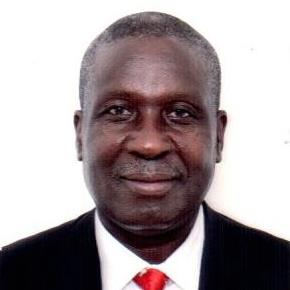 |
Hon. Reuben Mtolo PhiriMinister for Agriculture of the Republic of Zambia The Honorable Minister has worked in the agriculture sector, spanning from 1986 to 2004 in different Government agencies including the Namboard of Zambia, the Food reserve agency of Zambia and others in various positions as a research and planning officer, as economist, a general manager and as a food reserve manager, in-charge to manage national food strategic reserves. In 2011 – 2016 he served as a Member of Parliament and again from 2021 to date as Minister of agriculture. Honorable Mtolo has a clear understanding of the entire value chain of the agricultural industry in Zambia including the numerous challenges that affect farmers to facilitate safe trade of crops produced by the farmers and to get them to access markets. |
 |
H.E. Antti KurvinenMinister for Agriculture and Forestry of the Republic of Finland Antti Kurvinen is the Minister of Agriculture and Forestry of Finland, a Lawyer and a Member of Parliament. The remit of the Ministry of Agriculture and Forestry is to secure domestic food production and sustainable use of renewable natural resources and create the preconditions for economic activities and well-being derived from these. He has held various previous positions in the Finnish government, including the Minister for Science and Culture (2021-2022), the Chair of the Centre Party Parliamentary Group (2019-2021), and the Centre Party’s Deputy Party Leader (2016-2018). |
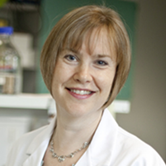 |
Melanie WelhamExecutive Chair of the Biotechnology and Biological Sciences Research Council (BBSRC) Professor Melanie Welham is Executive Chair of the Biotechnology and Biological Sciences Research Council (BBSRC), part of UK Research and Innovation. A long-time advocate for equality, diversity and inclusion, alongside leadership of BBSRC Melanie is also UKRI Executive Champion for People, Culture and Talent. She is also a Member of the Board of Trustees of the Human Frontiers Science Program Organisation and the Governing Board for Science Europe. |
 |
Osama El-LissySecretary, International Plant Protection Convention (IPPC) Dr. Osama El-Lissy is the Secretary of the International Plant Protection Convention (IPPC). The IPPC is a global intergovernmental treaty involving 184 countries and is responsible for setting and implementing international phytosanitary standards to protect the health of plant resources and to facilitate the global trade of agricultural products. Prior to his current appointment as the IPPC Secretary in March 2022, Dr. El-Lissy worked for the United States Department of Agriculture (USDA) for almost 22 years. For the past nine years, he served as Deputy Administrator of USDA’s Animal and Plant Health Inspection Service. In that role, Dr. El-Lissy led the national plant protection organization of the United States and served as the country’s chief plant health officer. He also provided leadership to 3,000 employees in the United States and around the world. Dr. El-Lissy held several other executive positions earlier in his USDA career. These included Associate Deputy Administrator, Director of Plant Health Emergency Programs, and National Coordinator of Cotton Pest Programs. Before joining USDA in 2000, Dr. El-Lissy worked for the Texas Boll Weevil Eradication Foundation from 1994 to 2000, leading one of the largest pest eradication programs in the world. From 1986 to 1994, he worked with the Arizona Cotton Research and Protection Council, managing large-scale cotton pest eradication programs in Arizona and the southwestern region of the United States. |
 |
Diarmuid GavinFAO National Goodwill Ambassador for Ireland; Diarmuid Gavin is an Irish garden designer and television personality who has designed many gardens throughout Ireland and the UK, mainland Europe, Africa and China for commercial, public sector and private clients. He has participated in the Royal Horticultural Society's Chelsea Flower Show nine times. In 2011 he won the gold medal and the BBC People’s Choice Award for his ‘Sky Garden’ and, in 2016, his ‘British Eccentric's Garden’ - inspired by the illustrations of Heath Robinson - won silver.As a broadcaster, Diarmuid presented gardening series for all the terrestrial broadcasters in the UK including Home Front, Planet Patio, Art of the Garden, Diarmuid’s Big Adventure, Gardens Through Time and Gardening Together, all for BBC 2.He has authored 13 garden design books including Planet Patio, Homefront in the Garden, Diarmuid Gavin's Big Ideas, Design Your Garden (published in three languages) and Gardens Through Time: 200 years of the English garden. Diarmuid has recently become patron of the Royal Horticultural Society of Ireland and in 2007, he received an Honorary Degree of Doctor of Arts from Nottingham Trent University in recognition of his international reputation for contemporary garden design.The Director-General of the Food and Agriculture Organization of the United Nations appointed Diarmuid as FAO Goodwill Ambassador for Ireland in May 2022 (he was previously designated FAO Champion of Plant Health for the International Year of Plant Health in 2020). |






